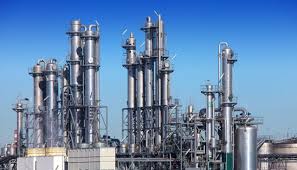The landscape of petroleum refinery investment has seen a shift towards modular mini-refineries, ranging from basic diesel production units to advanced cracking refineries. These modular setups offer crude producers and investors a flexible and cost-effective supply option, especially when rapid adaptation to meet local demand is essential. Key advantages include relatively low capital costs, rapid construction, and operational flexibility.
For such investments to succeed, several conditions must align. These include proximity to crude supply sources, access to sizable markets with logistical advantages, access to project finance with favorable terms from development credit agencies, and government incentives supporting local capacity development.
The economic viability of a mini-refinery hinges on three critical elements: the choice of crude oil or crude slate, the complexity of refining equipment or refinery configuration, and the desired product slate in terms of type and quality. In Nigeria, the establishment of mini-refineries is not only technically feasible but also economically viable, given the ready availability of raw materials, modern and straightforward production processes, and a readily available market.
Beyond economic considerations, setting up mini-refineries in Nigeria promises significant multiplier effects for the economy. It will optimize resource utilization, create job opportunities, generate income, and reduce dependency on petroleum product imports.
This report specifically delves into the feasibility of establishing a mini/modular refinery in the Niger Delta region of Nigeria, considering aspects such as procurement and installation of the plant, licensing requirements, manpower needs, and raw material sourcing.
The potential for mini-refineries in Nigeria extends beyond economic gains, contributing to sustainable development and local capacity building in the petroleum industry.
For such investments to succeed, several conditions must align. These include proximity to crude supply sources, access to sizable markets with logistical advantages, access to project finance with favorable terms from development credit agencies, and government incentives supporting local capacity development.
The economic viability of a mini-refinery hinges on three critical elements: the choice of crude oil or crude slate, the complexity of refining equipment or refinery configuration, and the desired product slate in terms of type and quality. In Nigeria, the establishment of mini-refineries is not only technically feasible but also economically viable, given the ready availability of raw materials, modern and straightforward production processes, and a readily available market.
Beyond economic considerations, setting up mini-refineries in Nigeria promises significant multiplier effects for the economy. It will optimize resource utilization, create job opportunities, generate income, and reduce dependency on petroleum product imports.
This report specifically delves into the feasibility of establishing a mini/modular refinery in the Niger Delta region of Nigeria, considering aspects such as procurement and installation of the plant, licensing requirements, manpower needs, and raw material sourcing.
The potential for mini-refineries in Nigeria extends beyond economic gains, contributing to sustainable development and local capacity building in the petroleum industry.
1. Overview of the Downstream Sub-sector
1.2 Nigerian refining sector in view
1.3 SWOT Analysis
1.4 The NNPC refineries
1.5 classification of refineries
2 Nigeria petroleum product supply and demand
2.1 Supply distribution system
2.2 Supply and Demand instrument
2.3 Self sufficiency projections
3 The case of mini/modular refineries
3.1 Product slate
3.2 mini/modular refinery configurations
3.3 comparison of a mini/modular refinery with a conventional refinery
3.4 Building a mini/modular refinery
3.5 site feasibility
4. Refinery licensing in Nigeria
5 Project Parameters
5.1 Refinery capacity
5.2 Refinery product yield
5.3 Proposed Location
6. Economics of Proposed Mini/Modular refinery
6.1 Product Pricing
6.2 Capital Expenditure (Break –Down )
6.3 Operational Expenditure
6.4 Crack Spread calculation
6.5 Pro-forma Cash flow
6.6 Assumptions to Cash Flow
6.7 internal rate of returns
7. Key crucial success factors
TABLE OF FIGURE
Distillate Yield
PETROLEUM PRICES HISTORY
PPPA PRODUCT PRICING TEMPLATE
COST STRUCTURE
LIST OF COMPANIES GRANTED APPROVAL TO CONSTRUCT
REFINERY PRODUCTION /METRIC TONNE
REFINERY PRODUCT AND THEIR USES
KPRC INSTALLED CAPACITY AND UNIT
WRPC INTALLED CAPACITY AND UNIT
FUNCTIONAL INSTALLED CAPACITY AND UNIT
1.2 Nigerian refining sector in view
1.3 SWOT Analysis
1.4 The NNPC refineries
1.5 classification of refineries
2 Nigeria petroleum product supply and demand
2.1 Supply distribution system
2.2 Supply and Demand instrument
2.3 Self sufficiency projections
3 The case of mini/modular refineries
3.1 Product slate
3.2 mini/modular refinery configurations
3.3 comparison of a mini/modular refinery with a conventional refinery
3.4 Building a mini/modular refinery
3.5 site feasibility
4. Refinery licensing in Nigeria
5 Project Parameters
5.1 Refinery capacity
5.2 Refinery product yield
5.3 Proposed Location
6. Economics of Proposed Mini/Modular refinery
6.1 Product Pricing
6.2 Capital Expenditure (Break –Down )
6.3 Operational Expenditure
6.4 Crack Spread calculation
6.5 Pro-forma Cash flow
6.6 Assumptions to Cash Flow
6.7 internal rate of returns
7. Key crucial success factors
TABLE OF FIGURE
Distillate Yield
PETROLEUM PRICES HISTORY
PPPA PRODUCT PRICING TEMPLATE
COST STRUCTURE
LIST OF COMPANIES GRANTED APPROVAL TO CONSTRUCT
REFINERY PRODUCTION /METRIC TONNE
REFINERY PRODUCT AND THEIR USES
KPRC INSTALLED CAPACITY AND UNIT
WRPC INTALLED CAPACITY AND UNIT
FUNCTIONAL INSTALLED CAPACITY AND UNIT
$300 (N350,000)
Get your conditional loan offer: admin@fundxperts.com
Contact: admin@fundxperts.com

